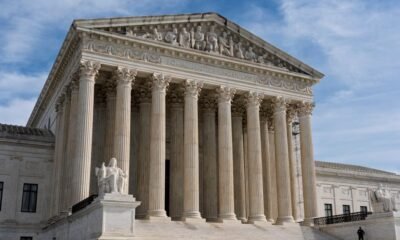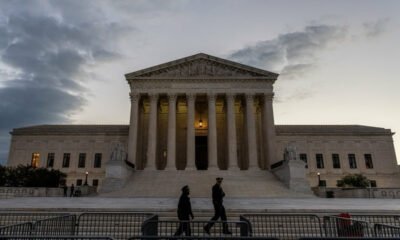Aspen Public Radio
NPR Takes Legal Stand Against Trump’s Funding Cut, Citing First Amendment Rights

WASHINGTON — A coalition of National Public Radio stations has filed a lawsuit against the Trump administration, aiming to block an executive order designed to halt their federal funding. This 43-page legal document asserts that the order undermines Congressional intent and violates First Amendment rights, including freedom of speech, freedom of the press, and freedom of association. The National Public Radio system serves millions of Americans, providing essential news and information.
President Trump’s executive order calls for the Corporation for Public Broadcasting to stop allocating funds to both NPR and the Public Broadcasting Service. The administration argues that public media funding is “outdated and unnecessary,” alleging it jeopardizes journalistic independence.
The lawsuit highlights what it terms “overt retaliatory purpose” behind the order, claiming it constitutes viewpoint-based discrimination and breaches the First Amendment. It maintains that the order infringes on NPR’s and its affiliates’ editorial freedom by attempting to strip critical funding without proper notice or due process.
NPR, alongside three Colorado stations—Aspen Public Radio, Colorado Public Radio, and KSUT Public Radio—has brought this case to the U.S. District Court for the District of Columbia. The case will be overseen by Judge Randolph D. Moss, appointed by former President Barack Obama.
In response, White House Deputy Press Secretary Harrison Fields stated that the Corporation for Public Broadcasting uses taxpayer funds to support a specific political agenda. He emphasized that the President is authorized to limit funding to ensure the efficient use of taxpayer dollars.
Founded as a private nonprofit, the Corporation for Public Broadcasting receives its budget from Congress, which has consistently approved its funding on a bipartisan basis. Presently, it holds a $535 million appropriation. The lawsuit argues that losing this funding would have catastrophic consequences for NPR, asserting that the President lacks constitutional authority to interfere in legislative funding decisions.
“The power of the purse resides with Congress, and the President cannot unilaterally impose conditions on funding in defiance of Congressional intent,” the lawsuit states, emphasizing the need for maintaining the Separation of Powers and adhering to the Spending Clause of the Constitution.

















